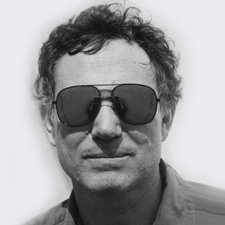Terminal: Difference between revisions
From The Joe Frank Wiki
m Text replacement - "}} {{" to "}}{{" |
m Text replacement - "== Commentary == {{commentary}}" to "" |
||
| Line 52: | Line 52: | ||
The original broadcast credits state: "With [[Larry Block]], [[Kristine McKenna]], [[David Rapkin]], Sharon O'Connell, Buddhist teacher [[Jack Kornfield]], and Joe Frank. Production: [[Ray Guarna]]. Production assistance: Esmé Gregson. Special thanks to Cally Rose." | The original broadcast credits state: "With [[Larry Block]], [[Kristine McKenna]], [[David Rapkin]], Sharon O'Connell, Buddhist teacher [[Jack Kornfield]], and Joe Frank. Production: [[Ray Guarna]]. Production assistance: Esmé Gregson. Special thanks to Cally Rose." | ||
[[Category:Karma_Style]] | [[Category:Karma_Style]] | ||
Revision as of 19:01, 26 March 2021
| Series | |
|---|---|
| The Other Side | |
| Original Broadcast Date | |
| 8/5/2001 | |
| Cast | |
| Larry Block, Zak Block, Kristine McKenna, David Rapkin, Jack Kornfield, Joe Frank | |
| Format | |
| Karma Style, 56 minutes | |
| Preceded by: | Men Of The Cloth |
| Followed by: | Black Hole |
"I have this strange fantasy life when I eat."
Terminal is a program Joe Frank produced as part of the series The Other Side. It was originally broadcast on August 5, 2001.
Synopsis
- Larry - fantasies while he's eating: being a cop, confronting Gary Condit.
- Kornfield - reordering Maslow's hierarchy and a story of a destitute man in India who wants to talk about religion.
- Zak and Larry - security catches Zak drinking, Larry doesn't care.
- Larry and Joe - All Larry can do is withhold money. Larry as a roll model. Neill's and Reich's philosophies of child rearing. Is Larry's lifestyle a rational decision. Comparing Larry's career to fellow actors. Substance abuse as the cause of his downfall.
- Kornfield - Loving kindness meditation in the forest. Keeping oneself from danger.
- Kristine McKenna and Joe - a recent trip he made to the emergency room suffering from internal bleeding; human kindness, connecting emotionally with people; leaving the hospital and immediately returning to old habits and the drive for sex and combat.
- Kornfield - what matters in the end.
- Larry - a letter for a former participant in an affair lands him in trouble. Fantasies about leaving.
- David Rapkin - choosing an alternate live on a tiny boat.
- Larry and Joe - they fight over the cause of Larry's downfall.
- Joe argues it is due to his own failings and lack of self understanding.
- Larry is offended, argues that the Joe's case is bogus and a rationalization for class oppression.
- Kornfield - pleasure and pain are all a part of human experience.
- Woman - She lets a street guy use her bathroom, he won't leave - it's Larry!
- Kornfield - reads from Rilke's Letters to a Young Poet: "Being an artist means: not numbering and counting, but ripening like a tree, which doesn't force its sap, and stands confidently in the storms of spring, not afraid that afterward summer may not come. It does come."
Music
- "Spiritual Healing" - Toots Hibbert (from Spiritual Healing, 1983) | YouTube
- "Sex" - The Necks (from Sex, 1989) | YouTube
- "Romantic Love" - DJ Cam (from Mad Blunted Jazz, 1996) | YouTube
Additional credits
The original broadcast credits state: "With Larry Block, Kristine McKenna, David Rapkin, Sharon O'Connell, Buddhist teacher Jack Kornfield, and Joe Frank. Production: Ray Guarna. Production assistance: Esmé Gregson. Special thanks to Cally Rose."
